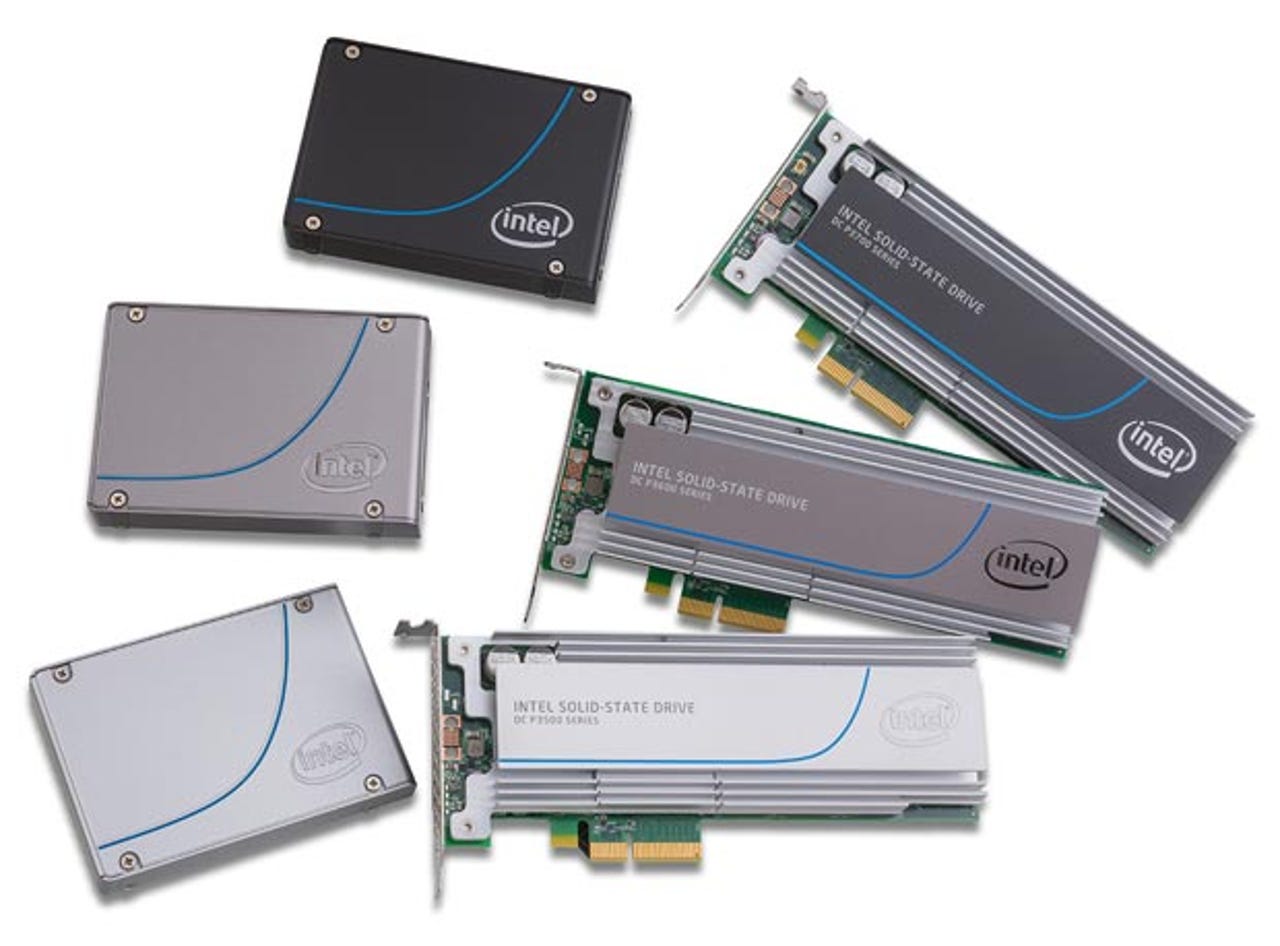Computex 2014: Intel, Samsung, Crucial unveil new SSDs


It might not be as sexy as new laptops or mobile processors announced at Computex — or covered to death like WWDC — but plenty of hardware news is coming out of Taipei, including a slew of solid-state drives that cover all the bases for storage needs.
Read this...
For budget-minded consumers, Crucial has unveiled the MX100 line, which starts at just $79.99 for a 128GB drive ($109.99 for 256GB and 512GB for $224.99). Of course, paying a little more for the 256GB version (or a lot more for the 512GB drive) will get you Micron’s new 16nm NAND flash memory and the company's custom firmware, delivering 550MB/s sequential read speeds and 500MB/s sequential write speeds for the 512GB version (330MB/s for the 256GB flavor). According to StorageReview.com, the 128GB version relies on 20nm flash and provides 550MB/s sequential read speeds, but just 150MB/s sequential write speeds. Crucial also promises 90,000 input/output operations per second (IOPS) for the larger-capacity MX100 models.
At the other end of the storage spectrum, Samsung is attacking the data center with its new 845DC EVO lineup. It's not emphasizing performance, however, as the new drives use the SATA 6GB/s interface and the company's triple-level-cell (TLC) NAND flash memory. As a result the 845DC EVO sequential read speeds are quoted as lower than the MX100 at 530MB/s. Sequential write speeds range from 270MB/s for the 240GB version to 410MB/s for the 480GB and 960GB drives. Random 4KB reads also trail Crucial's new SSD, with the 845DC EVO able to handle 87,000 IOPS. Instead, Samsung is promoting endurance and reliability, as the new drives come with a five-year warranty and the 960GB edition can write up to 600TB of data before failure.
According to Tom's Hardware, the 845DC EVO drives will cost $249.99 for 240GB, $489.99 for 480GB, and $969.20 for 960GB when they become available later this month.
Neither of these announcements will receive the same level of hype as Intel's launch of the Solid-State Drive Data Center Family for PCIe. These new drives are designed to work with the company's Xeon processors and to deliver superior performance to replace a handful of SATA 6Gb/s SSDs in a server setup.
The new family comprises the DC P3500, DC P3600, and DC P3700 series, all using a new Non-Volatile Memory Express (NVMe) storage interface standard designed to lower latency. They take advantage of the PCI Express interface to deliver blazing speeds that are perfect not only for data centers, but also for high-performance PCs. At its slowest, the new family tops out at 550MB/s sequential write speeds for the 400GB DC P3600 (albeit 2.1GB/s for sequential reads) — and everything goes up from there. The other P3600 drives all perform sequential reads at 2,600MB/s and range in write speeds from 1,000MB/s for the 800GB model to 1,600MB/s for the 1.6TB and 2TB versions.
The P3700 is even faster, starting from 1,200MB/s sequential reads and 2,700MB/s writes for the 400GB unit to 1,900MB/s writes and 2,800MB/s sequential reads for the 800GB, 1.6TB, and 2TB editions. (Unlike the P3600, the P3700 lacks a 1.2TB drive.) Most of the drives from both lines can handle 450,000 IOPS, and each family member is rated for a mean time before failure of 2,000,000 hours.
Intel has released limited info on the P3500 line, though we know it can provide up to 1,700MB/s sequential reads and 2,500MB/s sequential writes, and drives will come in 400GB, 1.2TB, and 2TB capacities. Pricing for the 400GB P3500 is slated at $599, with the 400GB P3600 priced at $783 and the 400GB P3700 costing $1,207. Enthusiast PC buyers/builders might spring for a P3500 drive for their high-end systems, though Intel is clearly steering the new family toward the enterprise.